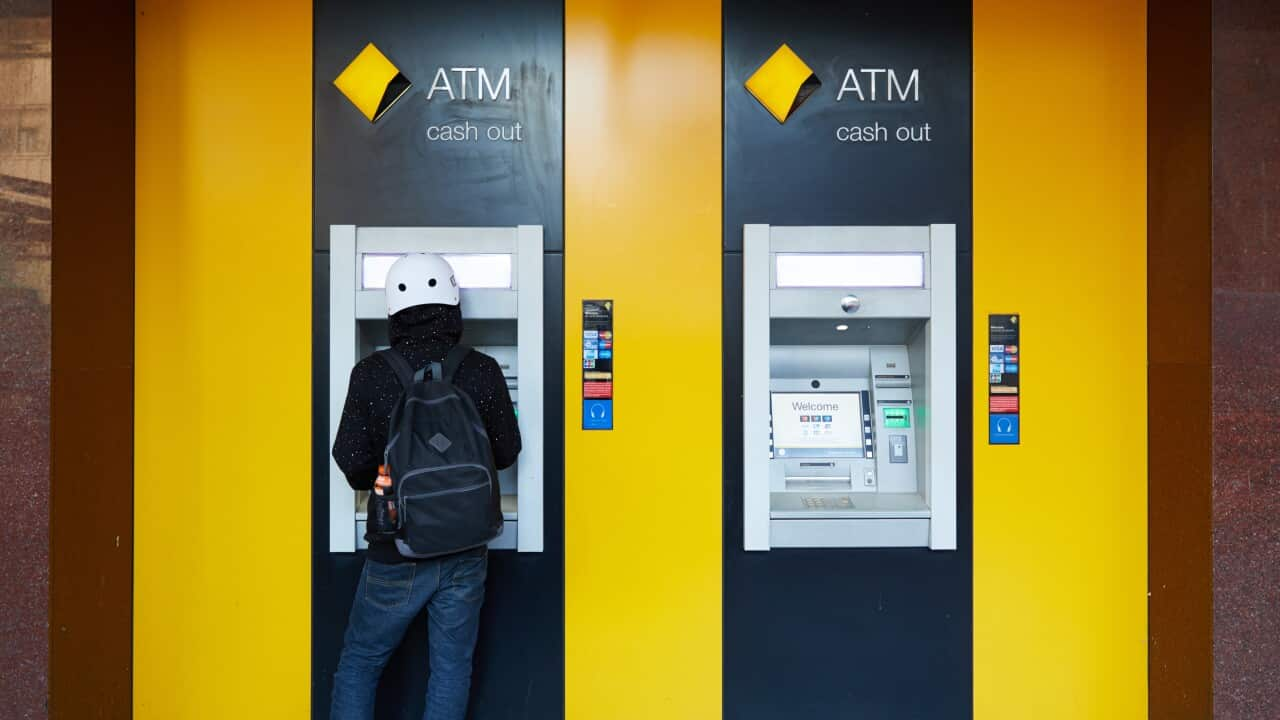Key Points
- Financial abuse is common and hard to escape.
- Women are twice as likely to be victims of financial abuse.
- Banks are making provisions to punish perpetrators of financial abuse.
Financial abuse can be hard to spot and even harder to escape.
is "when a partner or family member or carer restricts your ability to acquire money, use money, or maintain your financial wellbeing," Centre for Women's Economic Services (CWES) CEO Rebecca Glenn told SBS News.
Women are twice as likely as men to experience financial abuse, but it's not just a "women's issue" and needs to be further addressed by financial institutions, CWES wrote in a November 2022 paper.
One in six Australian women have experienced economic abuse by a partner, according to a recent government survey,
In almost all cases of , the victim is experiencing a range of other forms of abuse, whether emotional, psychological, spiritual, physical, or sexual.
Often "what is going on is kind of hidden behind cultural norms" and isn't spoken of due to societal aversion to talking about money, Ms Glenn said.
Two major Australian banks have moved to strengthen their ability to act against financial abusers - here's how you can identify this abuse.
What does financial abuse look like?
Financial abuse can look like "not letting you have access to your bank account, or only giving you, you know, very sort of strict allowance, and you're not having any freedom to choose what you spend money on," Ms Glenn said.
It can also look like exploitation or sabotage.
"It might be that you earn money that your partner takes it straight away. Or all the bills in the household are put in your name, leaving you liable for them," she said.
The sabotage of resources means someone is compromising your employment.
"(An abuser) may make it hard for you to get to work, or they keep you awake at night, making it hard for you to perform at work. And all of that can also impact your ability to earn an income," Ms Glenn said.
"The key thing with financial abuse is that it is restricting someone's autonomy."
How can people get support?
Leaving a relationship with an abuser is dangerous and can be very difficult once someone is financially trapped, Ms Glenn said.
It recommends steps like having independent bank, phone and email accounts that abusers can't access.
Financial counsellors and family violence services may be able to assist.
What are banks doing to combat financial abuse?
National Australian Bank (NAB) updated its terms and conditions last week to include provisions for bankers to "cut off" customers who've been identified as committing financial abuse.
Once the changes come into effect in November, the bank can suspend, cancel or deny individuals access to their savings and transaction accounts.
"Concerns about financial abuse remains one of the top reasons customers get in touch with our customer support team, NAB Assist," NAB's head of customer vulnerability, Michael Chambers, said.
"We're taking a firm stand against financial abuse, and we aren't resting there. We're working with other banks to help develop a consistent approach across the industry."
The Commonwealth Bank of Australia has also said it will name financial abuse as "an unacceptable behaviour" in new terms and conditions.
CWES has welcomed these changes, which it had recommended in the November 2022 paper.
"What we want to see is the whole industry develop a 'financial safety by design' tool, so that they build products with financial safety in mind from the start," Ms Glenn said.
"We'd like to see regulators look at things like the new design and distribution obligations for financial product providers incorporating the risk of products being misused for financial abuse."
If you or someone you know is impacted by family and domestic violence, call 1800RESPECT on 1800 737 732 or visit . In an emergency, call 000.
, operated by No to Violence, can be contacted on 1300 766 491.












